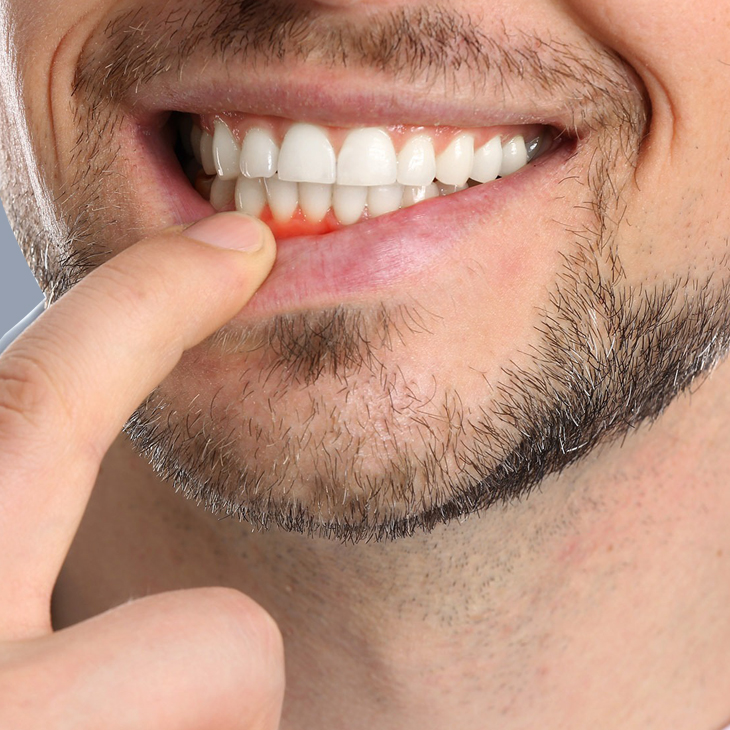
PERIODONTAL THERAPY in Maize, KS
Around 30% of adults grapple with periodontal disease, commonly known as gum disease, which stands as the primary cause of adult tooth loss. Although incurable, this chronic condition can be managed through routine professional hygiene sessions and diligent home care.
Gum disease often advances stealthily, devoid of noticeable symptoms. Many afflicted individuals endure no pain and are caught off guard by the swift deterioration it wreaks. Picture the gums and bone encasing your teeth as a house's foundation. Just as a sturdy foundation is vital for a house, your oral health hinges on robust gums and bone. When this foundation weakens, so does your overall oral health.
Regular dental check-ups, professional cleanings, and diligent home care routines are pivotal for early detection and effective management of periodontal disease.
Causes of Gum Disease: What You Need to Know
Within our mouths, a multitude of bacteria, both beneficial and harmful, coexist. These bacteria produce a residue known as plaque when they excrete waste, which adheres to our teeth. Regular brushing and flossing aid in removing plaque before it solidifies into tartar, providing a breeding ground for further bacterial growth, leading to toxin release into our gum tissue.
Upon invading our gums, bacteria prompt an immune response, triggering inflammation. Each tooth is surrounded by a small pocket of gum tissue, offering an ideal habitat for tartar and bacteria proliferation.
If left unaddressed, this inflammation can escalate into gingivitis, characterized by bleeding gums. Continuing bacterial growth in the gum pocket can progress into a chronic infection, gradually causing bone deterioration around the teeth. At this juncture, there may be mild tenderness but minimal discomfort as bone erosion occurs.
More than half of the bone surrounding our teeth can deteriorate before any indications of looseness or pain emerge. Regrettably, bone regeneration does not occur, rendering this loss irreversible and increasingly challenging to manage as bacteria embed deeper into the gums. In severe instances, untreated gum disease may lead to abscess formation and eventual tooth loss.
Diagnosis
Prior to confirming a diagnosis of gum disease, we evaluate several key factors. Normally, the gum tissue surrounding each tooth maintains a depth of approximately 2-3 millimeters, facilitating easy cleaning with floss or toothpicks. Our hygiene team, or Dr. Davidson, can meticulously measure and record these depths using a periodontal probe. If measurements exceed 3 millimeters and show signs of bleeding upon probing, it suggests the presence of periodontal disease.
Moreover, Dr. Davidson conducts a comprehensive assessment of your gum texture, shape, and mobility, alongside an examination of the levels, contours, and density of the bone surrounding your teeth through digital x-rays. By assimilating this data, we attain a comprehensive understanding of your gum health.
Treatment
Following our assessment of the severity of your gum disease, we tailor a personalized treatment plan. For mild cases with minimal bone loss, our hygiene team may effectively manage the condition in one or two visits. We equip you with a customized daily home care regimen and establish a professional maintenance schedule, potentially eliminating the need for further intervention.
If inflammation has progressed, accompanied by noticeable bone loss, a proactive approach becomes imperative to halt further deterioration. We may recommend numbing your gums and performing root planing or scaling. This meticulous cleaning process is conducted gradually, targeting one mouth area at a time. Utilizing both manual and ultrasonic instruments, we meticulously eliminate infected pockets around each tooth and remove mineralized tartar. The procedure concludes with teeth polishing to create smooth surfaces resistant to stain and plaque buildup.
Dr. Davidson may propose additional measures such as a medicated rinse, electric or ultrasonic toothbrushes, and tailored strategies to optimize your home care routine. It's essential to understand that while gum disease can be managed, it cannot be cured. Consistent home care remains pivotal in disease control.
Maintenance Matters
Consistent home care plays a pivotal role in arresting the advancement of gum disease. Bacteria can quickly repopulate and adhere to teeth within hours post-cleaning. Without disturbance, plaque can solidify and mineralize within a day. It's vital to note that deeper gum pockets demand heightened attention to thwart bacteria from compromising tooth stability.
Cleaning gum pockets previously damaged by bacteria can pose challenges at home, underscoring the importance of maintaining a regular schedule with us. We can customize your plan, scheduling two, three, or four visits annually based on disease severity, treatment response, and home care effectiveness.
If our collaborative efforts fail to effectively slow or halt gum disease progression, we may suggest a referral to a periodontist, a specialist in treating gum conditions.
Mouth-Body Connection
Recent research has illuminated a robust link between oral bacteria and serious health conditions like heart disease, stroke, arthritis, Alzheimer's, and certain cancers. The depth of understanding regarding the nexus between oral health and overall well-being has never been clearer.
When gums bleed, they create a direct conduit for oral bacteria to enter the bloodstream, facilitating rapid dissemination. Just as an open skin wound can invite infection, bleeding gum tissue warrants similar concern. This elucidates why oral bacteria deposits are consistently discovered in various body sites.
Individuals grappling with diabetes and other autoimmune disorders possess a compromised ability to combat infections, leading to accelerated gum disease progression and heightened damage. Moreover, studies affirm that oral inflammation can exacerbate diabetes, complicating its management. This reciprocal interplay between these chronic conditions underscores the criticality of upholding proper oral hygiene.